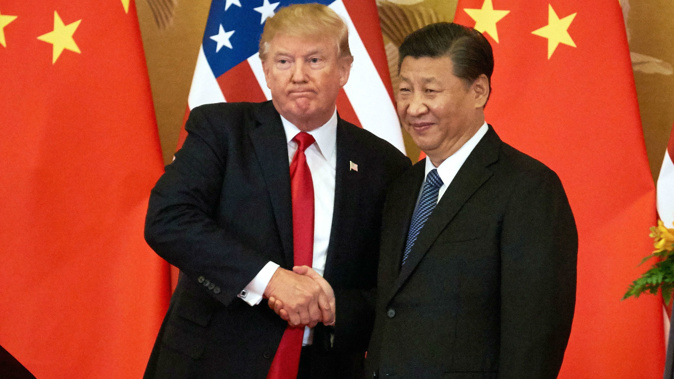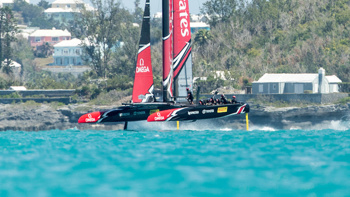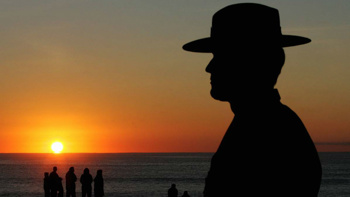
Hot on the heels of a major military demonstration along the disputed islands in the South China Sea, China is sending a pointed message to its neighbour Taiwan, and to the United States.
The Chinese military is scheduled to hold live-fire drills in the Taiwan Strait on Wednesday — a clear warning to Taipei about seeking independence or closer ties with Washington.
Taiwan is a self-ruled island republic, but China sees it as a breakaway province that should be brought back into the fold and has not ruled out reunification by force.
/arc-anglerfish-syd-prod-nzme.s3.amazonaws.com/public/ATY2WTHO5NDUDLZ6H7TLVEH7RQ.jpg)
The Chinese government has been paranoid about any moves to bolster the island's independence, and the drills are seen as a warning to the US not to interfere with China's plans in Asia, says Professor John Blaxland from the ANU's South-East Asia Institute and head of the university's Strategic and Defence Studies Centre.
"This is a demonstration to show to the regional players in the neighbourhood, to Taiwan, to Japan, to the other South-East Asian states that China is serious. It is going to have to be reckoned with if countries want to challenge it — and that's a pretty powerful message," he told news.com.au.
For China it's a message 22 years in the making.
"Two decades ago Bill Clinton sent carrier strike groups through the Taiwan Strait as a show of force. This (Chinese exercise) is in my view an act that is very much with that assertion of American power in mind and demonstrating to the US, and others, that that's not an option any more," Prof Blaxland said.
US President Donald Trump has shown a propensity for erratic diplomatic behaviour and inconsistency when it comes to the use of the military force. The Chinese drills, at least in part, are ostensibly designed to act as a deterrent for the US committing its military to the region.
"This is a demonstration to reinforce the point to Trump that you don't have a stake in this, to say to Trump; make a deal, back off, leave this space to us," Prof Blaxland said.
"That is something that is particularly disconcerting to all the neighbours, for Taiwan, for Japan, to a certain extent Korea and for all the South-East Asian nations, even if they won't say so publicly."
While China's latest military drill is designed to project a pointed message to any rivals who might want to curb its power in the region, it is also very much about reminding Taiwan not to get any ideas.
"There's been considerable concern for quite some time now about Taiwan's growing desire to assert its independence," Prof Blaxland said.
After the Communist Party earlier this year paved the way for China's President Xi Jinping to rule for life, he warned on March 20 that "all acts and tricks to separate the country are doomed to fail".
The Chinese government has given scant details about today's show of force but said the exercise will last from 8 am to midnight, local time (China is two hours behind Australia).
It comes just days after the country deployed much of its naval hardware for the world to see in a demonstration in the South China Sea. That drill included 10,000 personnel, 76 fighter jets, 48 naval vessels, a nuclear-powered submarine and China's sole operational aircraft carrier, the Liaoning.
The Liaoning aircraft carrier is expected to be a part of the drills in the Taiwan Strait because the ship could be used to effectively acquire control of the airspace over Taiwan and block any potential strategy from a US-Japan-led alliance to intervene in a Chinese plan to take back control of the island.
/arc-anglerfish-syd-prod-nzme.s3.amazonaws.com/public/4EUJANETLFF3JKRCIH3FECAFDA.jpg)
China is keen to flex its naval muscle, which has grown considerably under the current president who has consistently indicated a desire to expand its military presence into the Pacific and beyond.
"The task for building a strong navy is urgent. We must strengthen through reform and technology and promote modernisation, to increase combat capacity and readiness," President Jinping said during the recent drills in the South China Sea.
Prof Blaxland said it has been "quite a substantial and rapid build-up of the Chinese navy and its capabilities" in recent years.
China's Taiwan Affairs Office director Liu Jieyi said on Monday that the drill in the Taiwan Strait was "an action to safeguard the sovereignty and territorial integrity of our motherland".
Following the country's own military exercise, Taiwanese President Tsai Ing-wen said she has "the confidence and determination to safeguard the country's security".
Ms Tsai's Democratic Progressive Party (DPP) is traditionally pro-independence and her newly appointed premier William Lai is a longstanding independence advocate.
The US — which switched diplomatic recognition from Taiwan to China in 1979 — maintains trade relations with the island and is its main arms supplier.
Last month, Mr Trump signed off on the Taiwan Travel Act which encourages travel between US and Taiwan by officials at all levels and recognises Taiwan as a "beacon of democracy in Asia".
Previously, Washington did not allow top Taiwan officials to visit and barred its own top officials from travelling to the island nation.
Take your Radio, Podcasts and Music with you









